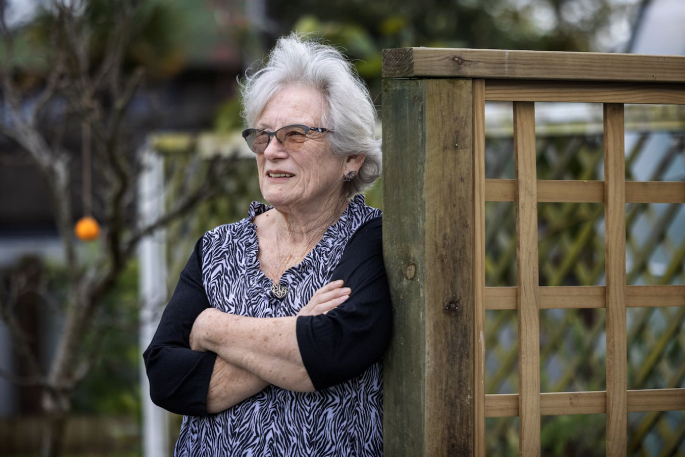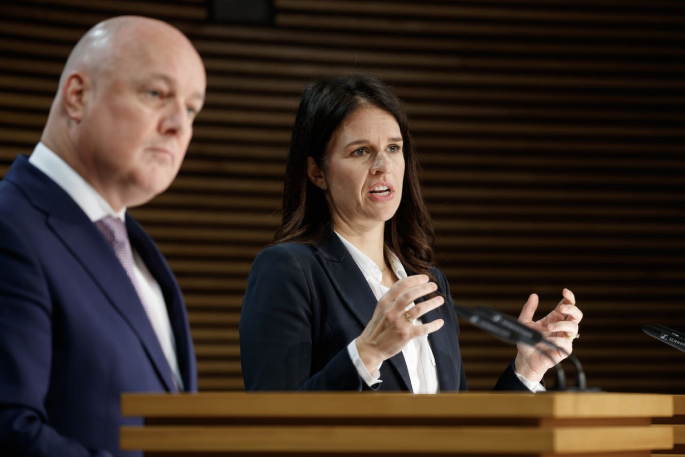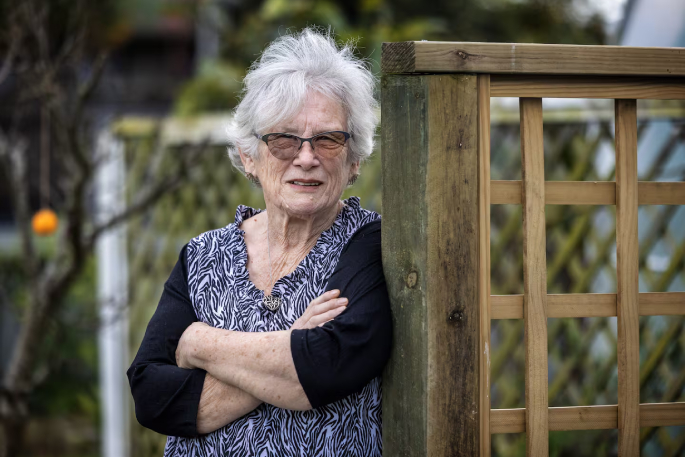After Kawerau woman Kaaren Dunn gave birth to her daughter at age 19 in 1965, she was coerced into agreeing to adopt her out.
Now, the 78-year-old wants the Government to apologise to all women who suffered the same experience.
Activist Joss Shawyer - who came under pressure to agree to give up her twins for adoption because she was a single mother in 1969 - says huge numbers of women who lost children to adoption experienced abuse and coercion in public hospitals.
They must be explicitly included in the formal Government apology to those who experienced state and faith-based care to be delivered by Prime Minister Christopher Luxon on November 12, Shawyer says.
In 2016 Maggie Wilkinson - a mother coerced into giving up her child for adoption - petitioned Parliament to undertake a broad and full inquiry into forced adoption, and acknowledge the pain and suffering caused.
Wilkinson and other women gave emotional accounts of their own loss to the Social Services Committee, but a majority of its members reasoned that “although we do not agree with many adoption practices from the 1950s to the 1980s, we note that these practices reflected the social values and attitudes of the time”.
In 2018 the new Labour-led Government ordered an inquiry into the abuse of children in state care. Wilkinson and others successfully lobbied for the terms of reference to be widened to include faith-based institutions.
The long-awaited report of the subsequent Abuse in Care Royal Commission was released in July this year and included a section on unmarried mothers’ homes, run by the Anglican, Catholic and Presbyterian churches and the Salvation Army.
“Young girls and women were subjected to verbal abuse, physical abuse and forced labour, medical abuse during pregnancy and childbirth, and psychological and emotional abuse through being coerced or forced to adopt out their babies,” the inquiry concluded.
“The demonisation, dehumanisation and subsequent abuse of girls and women in the homes were justified or reinforced by religious beliefs … their children were seen as in need of rescue and redemption by being adopted to respectable families.”
‘The hospitals have got a lot to answer for’
Dunn told the Herald when she was pregnant at 18, her family contacted the Salvation Army.
Dunn was eventually referred to a private obstetrician and gynaecologist in Nelson, who arranged an adoption.
During her “confidential pregnancy” Dunn moved from Auckland to Nelson and boarded with a family she did not know.
“They basically treated me like a servant - I had dinner with them one night a week. The rest of the time I cleaned and looked after the kids. It was very isolating.”
 Kaaren Dunn, 78, had a daughter aged 19 and was coerced into agreeing to adopt her. Photo / Mike Scott
Kaaren Dunn, 78, had a daughter aged 19 and was coerced into agreeing to adopt her. Photo / Mike Scott
In 1965 she was admitted to a public hospital to give birth and put in a room by herself.
“The way the deliveries were done then, they were done under general anaesthetic, so you didn’t actually see the baby. They were taken away straight away. My understanding is the adoption had already been arranged.”
Dunn stayed in hospital with a debilitating infection. When she had recovered enough to walk she searched for her daughter, who she could hear crying.
“All the other babies were out because the women were feeding them … I went to get her, and the nurse stopped me in the doorway.”
Ten days after the birth Dunn was escorted to a room and told to sign adoption papers and swear on a Bible that she’d never try and find her child. Many years later she met her adult daughter, but both women carry the trauma of separation.
“The hospitals have got a lot to answer for in terms of their involvement with adoption.”
The Royal Commission of Inquiry covered parts of the health system, like psychiatric facilities, but general hospital admissions were specifically excluded.
 Prime Minister Christopher Luxon and Erica Stanford, the lead minister for the government’s response to the Abuse in Care Royal Commission of Inquiry. Photo / Mark Mitchell
Prime Minister Christopher Luxon and Erica Stanford, the lead minister for the government’s response to the Abuse in Care Royal Commission of Inquiry. Photo / Mark Mitchell
A Ministry of Health spokeswoman told the Herald it “acknowledges the possibility of harm as a result of medical care provided in the past”.
“The ministry recognises that people receiving health treatment and care were, in the vast majority of cases, provided with what was seen as care which was in their best interests as a patient.
“The ministry also acknowledges that standards and guidance have changed over time. Treatment and care provided in the past is best assessed by the standards and guidance applied at the time, which often takes considerable expertise as has been demonstrated by the recent Royal Commission of Inquiry.”
Erica Stanford, the lead minister for the Government’s response to the inquiry, said that, as a mother, it was “incredibly confronting” to read about the experiences of the mothers who submitted to the inquiry, which was independent of the Government.
“I understand the matter of forced or coerced adoption was canvassed during the course of the inquiry and I understand the adoption community is disappointed this didn’t feature more prominently in the final report or have any specific recommendations. It’s not possible for me to comment on why this was, as this was a matter for the Royal Commission.”
A select group of survivors have been asked what should be included in the PM’s apology, Stanford says, which is being developed.
Shawyer will be listening on November 12, including for what isn’t said.
“If the Prime Minister ignores the tens of thousands of women who were in public hospitals, he’ll retraumatise every single one who is still alive. And most are,” she says.
“It’s just going to make it worse.”
Nicholas Jones is an investigative reporter at the Herald. He was a finalist for Reporter of the Year at the 2024 Voyager Media Awards and has won numerous national media awards for his reporting and feature writing.



0 comments
Leave a Comment
You must be logged in to make a comment.